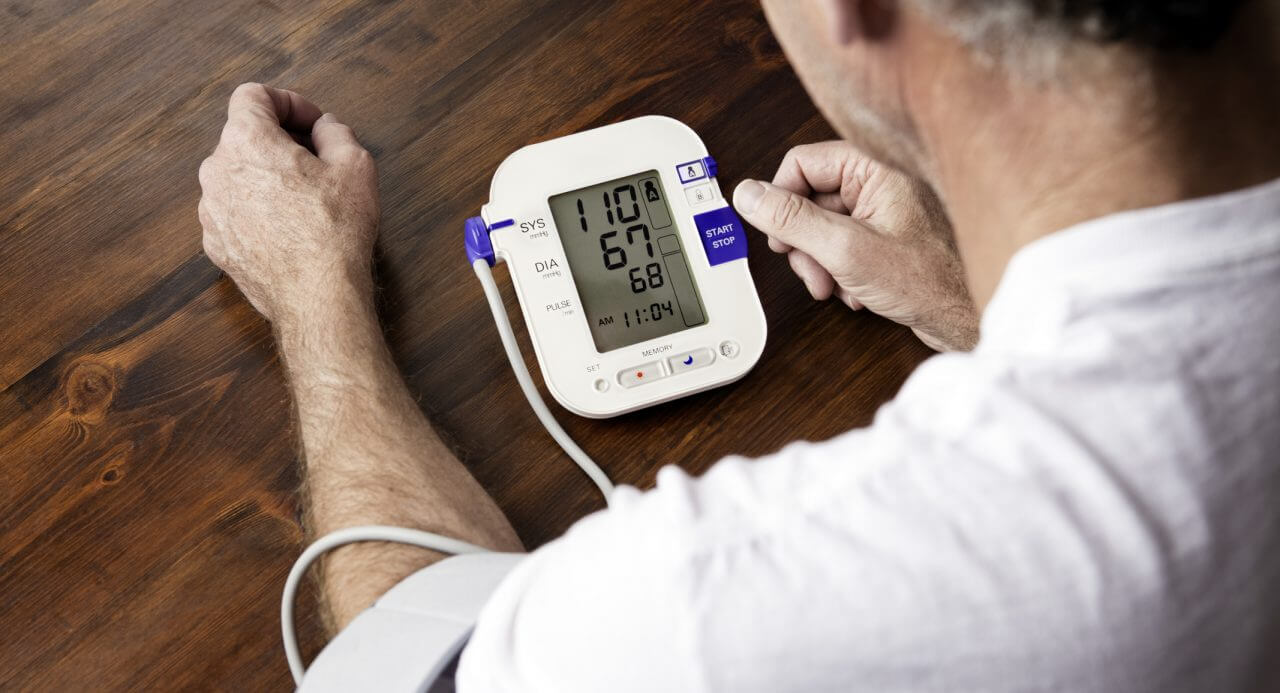What Causes High Blood Pressure?

Blood pressure is the force that’s exerted against the walls of your blood vessels as the heart beats to move blood around the body. There are two numbers that are part of that measurement: systolic and diastolic pressure. Systolic is the force as the heart is contracting and is generally the higher of the two. Diastolic is the force as the heart relaxes between beats.
Blood pressure is considered normal when it’s less than 120/80 (systolic/diastolic). It’s natural for your blood pressure to increase temporarily in stressful situations and then drop back down. However, if it’s always elevated, that’s considered high blood pressure, or hypertension. The higher the numbers are above 120/80, the greater the risk of heart disease, stroke, and other medical conditions.
It’s important to work with your doctor to achieve and maintain proper blood pressure, especially since hypertension can cause damage to the heart and arteries even though it isn’t producing noticeable symptoms.
High Blood Pressure Risk Factors
Most people with high blood pressure have primary or essential hypertension. Researchers don’t know exactly what causes this type of high blood pressure, but there are a number of factors that make a person more prone to it. They include:
- Being obese or overweight
- Smoking
- Stress
- Sedentary lifestyle
- Chronic kidney disease
- Family history of hypertension
- Being African American
- Consuming too much alcohol
- Advancing age
- Consuming too much salt
Another form of high blood pressure, secondary hypertension, tends to develop more rapidly and produce higher blood pressure than primary hypertension. Secondary hypertension can be caused by a number of medical conditions or medications, including:
- Kidney disease
- Thyroid problems
- Sleep apnea
- Adrenal gland tumors
- Congenital blood vessel problems
- Medications such as decongestants, over-the-counter pain relievers, birth control pills, and certain other prescription drugs
- Illegal drugs like amphetamines and cocaine
Treating High Blood Pressure
Fortunately, both primary and secondary hypertension can be treated. With primary hypertension, the first step is to make lifestyle changes, where appropriate, such as quitting smoking, lowering sodium intake and maintaining a healthy weight. If these changes don’t result in the desired lowered blood pressure, your doctor can prescribe medication to bring it into the normal range.
The treatment for secondary hypertension starts with addressing the cause, whether that means treating another medical condition or identifying the medication that’s elevating the blood pressure and finding an alternative. If those steps don’t produce a sufficient change, blood pressure medication may be prescribed.



